Graham Reid | | 3 min read
Ray Charles: I Want a Little Girl (1958)
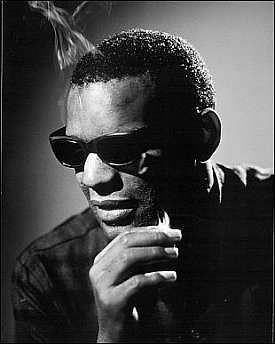
The word "genius" was used so often about Ray Charles that people probably ceased to believe it in this age where a minor sports figure is referred to as "an icon" and "awesome" has long since lost any meaning at all.
But Charles was a genius -- "The only genius in our business," said Frank Sinatra -- because in the mid Fifties he started to reshape music by his own alchemy when he borrowed from the church and the street, from jump jive and jazz, from blues and gospel, and from the rock'n'roll that was emerging out of black rhythm and blues and white country.
Later of course he would do whole albums of country songs (the two volumes of Modern Sounds in Country and Western in the early Sixties).
He would have huge hits in the early Sixties -- notably Georgia on My Mind and Hit the Road Jack -- but in the mid Fifties when he was on Atlantic Records he cracked out classic songs such as This Little Girl is Mine, Get On The Right Track Baby, Night Time is the Right Time and What Did I Say.
In '55 he topped the Billboard rhythm and blues charts with I Got A Woman and in '59 the thrilling What Did I Say was such a breakthrough that he took a better offer from ABC and left Atlantic.
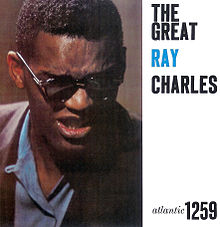 Oddly enough, despite his run of singles from '53 onwards, starting with Mess Around, Atlantic didn't get out a Charles album until '57, and many of the tracks were just the singles compiled. And Atlantic subsequently released other compilations, as well as a live at Newport album, and his Soul Brothers paring with the great vibes player Milt Jackson and a jazz outfit with drummer Connie Kay, bassist Oscar Pettiford and guitarist Kenny Burrell.
Oddly enough, despite his run of singles from '53 onwards, starting with Mess Around, Atlantic didn't get out a Charles album until '57, and many of the tracks were just the singles compiled. And Atlantic subsequently released other compilations, as well as a live at Newport album, and his Soul Brothers paring with the great vibes player Milt Jackson and a jazz outfit with drummer Connie Kay, bassist Oscar Pettiford and guitarist Kenny Burrell.
His first proper studio album leading a band was What Did I Say in '59 on which he had players like saxophonist David "Fathead" Newman, trumpeter Marcus Belgrave and of course the Raelets in his group.
But during these Atlantic years, Charles was pushing himself in all directions, as can be heard on the single disc 28-track compilation The Soul Explosion of Ray Charles 1954 - 1960 which has come out on Chrome Dreams, a label that seems to specialise in doing albums and DVDs "not authorised" by the artists.
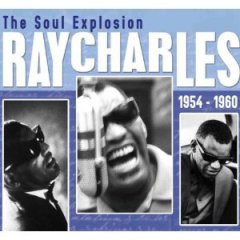 This isn't the best Charles collection from these years but it certainly covers a lot of territory, includes key hits and album tracks.
This isn't the best Charles collection from these years but it certainly covers a lot of territory, includes key hits and album tracks.
Songs like Greenbacks -- about spending that cash -- have a jump jive feel with honking horns and his small orchestra, but when that sound was married to his more earthy vocals on I Got A Woman you can hear a new kind of street-meets-jazz style emerging.
Yet on Come Back Baby that voice is placed in a low bluesy context.
Those are just the first three songs -- all original or co-writes with band member Renald Richards, produced by Jerry Wexler -- on this collection. And when the urgent backbeat kicks in for Leave My Woman Alone or Talkin' Bout You you can hear the strong influence from handclap gospel . . . but equally on the instrumental Rock House Part 1 and 2 it is a 12-bar blues which is the spine of the piece as the horns stab then drop back while Charles lets his jazzy fingers fly.
And for I Want a Little Girl he takes you straight to a 2am nightclub where Sinatra is sitting at the bar alone thinking about Ava Gardner and what might have been . . . and Brother Ray is taking the band through a chart which is a desperate, voice-cracking plea for love.
Charles might have been a great interpreter -- his later version of Eleanor Rigby is a standout -- but here a lesser vehicle like My Bonnie eludes even him.
Whether it be drawing from diverse sources, leting the Raeletes off the leash for Tell the Truth, playing piano or sax, or orchestrating for a small ensemble, Ray Charles was redefining the possibilities of popular music at this time.
And you know what? There's a word for someone who does that.
Want more along these lines? Then check out this guy.

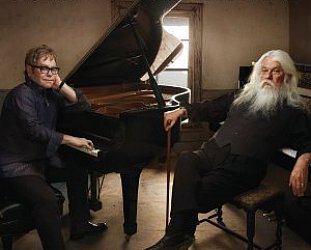

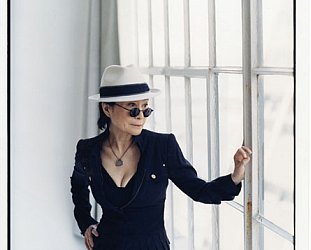
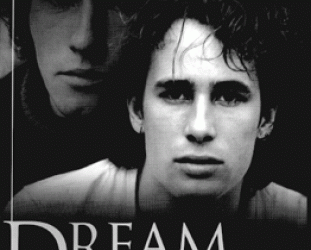
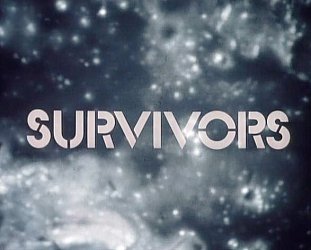
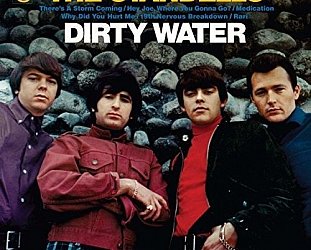
post a comment